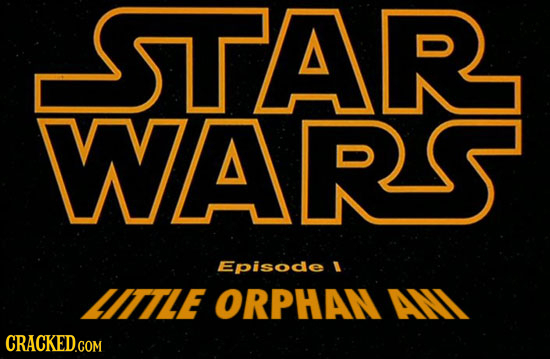aka At The Mountains Of Muttness
Galloping through today’s roundup are Adam Troy-Castero, Steven Saus, Jim C. Hines, Moshe Feder, Vox Day, Larry Correia, Greg Machlin, J. C. Carlton, Tom Knighton, K. Tempest Bradford, Brenna Clarke Gray, Saumya Arya Haas, Simon Bucher-Jones, Lela E. Buis, Sean Struck, Heather Allen and Tqwana Brown, Lou Antonelli, Eric Flint, Lis Carey, Ferrett Steinmetz, Martin Wisse, Peter Grant, Laura “Tegan” Gjovaag, James Schardt, Patrick May, Charlotte Ashley, and Kate Paulk. (Title credit belongs to File 770 contributing editors of the day Anthony and SocialInjusticeWorrier.)
Adam-Troy Castro
“The Art Of The Apology Is Broken Beyond Repair” – June 11
[Numbers 5 and 6 of 11.]
The I-Can-Demand-An-Apology-But-Will-Never-Give-One-And-Never-Accept-One Dynamic: This is a related phenomenon to the previous, in which the offended party cannot and will not accept any responsibility for a mutual dispute, saying, “I would be more than happy to apologize if I was wrong,” which somehow never ever happens. In such relationships, the offended party can last years without ever being once in error. Imagine that. The current controversy in the SF community is led by an individual who has actually come out and told his followers, in as many words, that they should never apologize at any point no matter how excessive their behavior might have been, because that’s surrender. He has also simultaneously demanded apology for one offense or another an almost daily basis. Here, apology is used primarily as a tool to back the other party further and further away from his previous position, gaining ground but never at any point acknowledging any point on which ground might be given. Apology is here a strategy, and it’s all about getting the other guy to issue one. One manifestation of this is insisting that everybody on the other side apologize for and disavow every regrettable thing ever said by any ally, no matter how tangential, while simultaneously saying, “I’m not responsible for everything everybody on my side does!” Apology is here a military strategy, not an attempt at understanding.
The I-Can-Demand-An-Apology-While-Indulging-In-Equivalent-Behavior-Apology: Otherwise known as the Torgersen, this is best summarized as “X needs to apologize for tarring everybody on my side with the same brush, which is the way those SJWs and CHORFS always behave.” This manifests without any self-awareness or sense of irony. Again, this is about gaining ground, not achieving understanding.
Steven Saus on ideatrash
“On His Flaming Phallus Substitute (or ‘Why Does It Burn When Vox Posts?’) and The Whole Tor Thing” – June 11
Vox (or Theodore Beale) revealed that he had held on to the screencap in question for weeks for maximum effect. To quote what he told File770 (source):
I’ve held onto this since I had the screencap, which as you correctly note was made several weeks ago. As for the “sinister plotting”, I have long been in the habit of never using all of my ammunition at once, or pointing-and-shrieking for its own sake. I am a patient man and I didn’t strike back at TNH, PNH, or even John Scalzi right away either.
So here’s the thing. I think Beale got a case of the supervillain soliloquy when he made that comment on File770 – because it tips his hand. It clearly shows that this isn’t real outrage. He’s not really upset about what was said. Vox’s actions are a deliberate, orchestrated, premeditated attack on a person and group that he has a beef with. This isn’t about beliefs or values. It isn’t about anything in fiction. This looks like nothing more than sociopathic pique, spite, and bile.
Jim C. Hines
“The Tor Mess” – June 10
Today: The apology thread at Tor.com has almost 500 comments. People on all sides are expressing anger at Tor and Tom Doherty, and some folks are still talking about a boycott…
…which would seem to be exactly what Beale wanted when he posted that screenshot and released the rabid hounds.
I mean, come on. You don’t think the man who routinely calls John Scalzi a rapist gives a damn about “libel,” do you? Gallo’s comment was a weapon he could use to try to damage Tor Books. And right now, in the heat of anger and argument, it looks like he succeeded.
Realistically though, I can’t imagine this boycott will be any more successful than his last effort. And most of the internet will probably have moved on by the end of the week.
Moshe Feder on Facebook – June 10
As far as I can tell, Irene didn’t start her personal blog page intending to malign any Puppies, either Sad or Rabid. Rather, she responded in a spontaneous, unpremeditated way to a request for an explanation about the Hugo controversy, in the process accurately describing Theodore Beale as a neo-Nazi. Since her answer to the query was so brief, the Sad Puppies were mentioned in close proximity to that description, which understandably left them very uncomfortable. (Eric Flint‘s analysis concluding that this was all a deliberate subtle ploy on Irene’s part to use guilt by association against them gives her too much credit. Like many visual artists, she is a spontaneous writer and not a calculating one.)
Irene has never been known for her diplomacy — I say that as someone who’s knocked heads with her more than once on work-related matters — but I think the reaction to her off-the-cuff statement is more extreme and over-the-top than the statement itself. After all, in the end, it was just one person’s opinion, readily ignorable by those who differ with it. (In fact, it actually _was_ ignored for weeks, until someone decided to weaponize it.) It’s _trivial_ compared to Brad and Larry’s premeditated, organized effort to violate a social compact of 60 years standing. If you want to express outrage, that’s where it should properly be applied.
Vox Day on Vox Popoli
“Moshe Feder doubles down… twice” – June 11
The Associate Editor of Tor Books doubled-down on Facebook:
I’ll be happy to say right now, here on my _personal_ FB page, speaking for myself and not Tor, that I agree with Irene that Vox Day can be fairly described as a neo-Nazi. – Moshe Feder, Associate Editor, Tor Books
It’s a very strange to accuse a self-declared Zionist who edits and publishes Israeli authors of being a neo-Nazi, but then, these are the same people who insist that Brad Torgersen is racist despite his marriage to a black woman…..
In light of these additional provocations by a Tor Books employee, I sent an email to Tom Doherty, Publisher at Tor Books, requesting that he deal directly with the public misbehavior of his Associate Publisher and his Associate Editor. I trust that he will address the situation in a professional and decisive manner. It should be obvious, at this point, that I am far from the only individual being attacked by his employees and that the unpleasantries are not going to end until those employees are held fully accountable for their ludicrously unprofessional actions.
Vox Day on Vox Popoli
“Yes, but…” – June 11
A File 770 SJW frets that we won’t be satisfied with Gallo’s resignation: ….
Well, that all depends on how many SJWs Mr. Doherty and/or Macmillan have the good sense to stop inflicting on science fiction. But (and this is the relevant point), thousands of current customers attacked by Ms Gallo won’t stop buying their books. If Gallo was a fry cook or a sales clerk, she’d be gone already. You don’t show that kind of disrespect and hatred for your customers and keep your job. You simply don’t. I am under no illusion that anyone at Tor or Macmillan like me or wish to do me any favors. But I do assume that they are capable of doing basic math and grasping the lesson of Fox News. Of course, if they instead decide that they want to play the role of CNN and sell only to the left one-third of the population, well, that is certainly their prerogative.
Larry Correia on Monster Hunter Nation
“The latest Sad Puppies related stuff” – June 11
You might have noticed that I’ve not posted much about this topic lately. My original points, that there is political bias in the system, which would result in slander and sabotage, has been pretty well proven. I don’t have much else to add.
Recently a Tor editor said something false and asinine. This is kind of a tradition, but for a bunch of fans this was the final straw. People got really mad (it turns out regular fans don’t like being called neo-nazis) and this time the comments came to the attention of Tor management.
I’ve personally stayed out of this one. I’m used to being lied about by these people. However, it turns out regular fans aren’t. Go figure.
As far as I’m concerned, this is between Tor and its customers. A bunch of folks have come out to condemn Tom Doherty as a misogynist for trying to protect his company, and more #standwithGallo to double down on her comments about how everybody who disagrees with them politically is a racist, sexist, homophobe. That’s awesome. You guys do far more to prove my original contention than anything I could have ever done on my own.
J. C. Carlton
“Is It Smart To Piss Off Your Customers And Vendors?” – June 10
Most of the puppies had been giving Tor a break. It was assumed that the extreme language that we had been seeing was the production of a very small group of individuals, not the entire Tor office. The call was “not to punish Tor” for the actions of those few. Ms. Gallo’s comment, and her actions represent behavior far outside the normal course of business. For that matter, so do those of the Neilson Haydon’s and others at Tor. The obvious intent was, from even before the nominations were announced to essentially destroy any credibility the puppies might have using the usual methods of the typical leftist power elite. Which is to cast anybody who has even a small argument against whatever the leftist agenda as “unrepentantly racist, misogynist, and homophobic.”
Well we have Mr. Doherty’s answer.
http://www.tor.com/2015/06/08/a-message-from-tom-doherty-to-our-readers-and-authors/#comment-526375
Apparently, using words like, “unrepentantly racist, misogynist, and homophobic.” as blanket statements under promotional posts for Tor’s is Ok as long as it’s not on Tor’s website. I think that the problem at Tor isn’t that Gallo made the statements as libelous and disgusting as they were, but the fact that Tor is the kind of place where statement like that are even thought of as something you would say as part of the regular part of business. the statement was made in response to an honest and easily answered question. instead of doing what any of we puppies would do and point the questioner to a bunch of websites or saying google it, Gallo resorted to the worst kind destructive and hateful language. Is this what it’s like in the Tor office? Apparently so.
Tom Knighton
“Where the differences lie” – June 11
From our perspective, the sin wasn’t that she [Irene Gallo] hated us. While her choice of words was upsetting to say the least, that wouldn’t have been enough to “rally the troops”, so to speak. The issue was that it was while she was promoting a Tor book. The perception, for right or wrong, was that she was operating in a professional capacity within that post.
No one thinks her personal Facebook page is an extension of her professional life as a general rule. The difference was what the post was.
Had her post simply been Puppy-bashing like Feder, both Neilsen Haydens, John Scalzi, David Gerrold, or a number of other people, nothing really would have been said.
The truth is, had it been any of those people, the apology wouldn’t have been enough for even me to call for folks to let it go. Some critics of the Doherty statement are absolutely correct. Those folks have said far, far more than Gallo ever did. They owe us far more in the way of an apology than Gallo ever did. They’ve said as much, if not worse, and said it far more often. The simple fact is that they haven’t said it on the same posts that they used to promote books by their employer.
For me, the difference simply lies in what they were doing.
Here’s something for folks to remember about me personally. The situation with Gallo is a historical note in Sad Puppies 3. It’s over and done with. But Patrick Neilsen Hayden and Moshe Feder? No, they’re ongoing and they are the reason I’m still considering whether I really want to buy any Tor books down the road. I’d rather not contribute to the level of hate I’ve seen come from them.
K. Tempest Bradford on Facebook – June 9
With the current situation, you have the big boss publicly shaming one female employee and sending a message to others that only certain behaviors are tolerated, and have you crossed the line? Watch out! (The line being: saying true things about a Tor author. The line not being: sexually harassing Tor authors, contractors, and employees.)
How the fuck are the other Tor editors supposed to feel about this? (This is not a call for said editors to tell us publicly. There’s a whole lot of reasons why they probably don’t want to do that. I don’t blame them.)
Then there’s the whole thing where Doherty just let Jim Frenkel do his thing for years and years, through multiple complaints from authors who weren’t signed with Tor, authors who were signed with Tor, independent contractors working with Tor, and Tor employees. I don’t remember a public statement about that. I don’t remember a Tor.com post shaming Frenkel. What I do remember is that we found out he was no longer employed at Tor from PNH’s Twitter account. I also remember that he wasn’t fired, he was allowed to resign.
I don’t remember Doherty apologizing to anyone for that.
Brenna Clarke Gray on Book Riot
“Reflecting on the Tor Letter as a Lady-Geek” – June 11
I am going to state three givens vis-à-vis this post: if you disagree with them, that’s cool, but maybe you shouldn’t bother reading this post because it will just make you want to say angry things on the internet that I don’t care to read.
- I think it’s pretty clear that Vox Day intentionally sat on Gallo’s weeks-old comments until Nebula Awards weekend when, presumably, it would have the greatest impact to trot them out and rally up an angry mob.
- I agree in spirit if not in language with Gallo’s critique of SP/RP.
- I’m a feminist. This post is categorized as “Feminism.” If the concept of feminism enrages you, feel free to go about your business elsewhere.
So. The Tor letter was a major disappointment for me as a female SFF fan. I was at NorWesCon when the Hugo Award nominees were announced and, having spent most of my weekend in well-attended panels dominated by female pros and openly discussing issues from Gamergate to Women in Refrigerators, hearing the success of Sad Puppies was a punch to the gut. Sometimes female fandom can feel like a game of one step forward, two steps back: every single time we make major representative strides, someone decides that our mere presence at the table — our mere desire to be seen — is political correctness run amok and we must be silenced.
Saumya Arya Haas on The The
“Infoxicated Corner: ALL THESE THINGS ARE TRUE: Saumya Arya Haas” – June 11
It is true. As in many SF/F tales, a world is at risk. The world of “tradition,” the world where straight, cis, white guys are the inheritors of the throne, the world where women and minorities have their identities dictated and blunted by a dominant narrative: that world is gravely at risk. It is slow erosion, but it’s real. The Puppies, caught up in the echo chamber of their own fantasies, see themselves as valiant heroes who must save this dying world. They want to control the narrative of the real world by symbolically controlling the narratives of a literary tradition. The world is being remade: by people living their lives out loud, by books, by outrage. We won’t be stuffed back into narrow margins. It must be terrifying to own the whole damn world and then feel it begin to slip away. No wonder they’re sad, and rabid.
We are not outraged about who wins a genre literary award; we are fighting over the world. We are outraged when our meaning comes in conflict with someone else’s meaning and there is a fight to subsume our perspective. We’re outraged because, for many of us, this is not a story about stories. This is the story of our lives. My sympathy with the other side evaporates because there is, very clearly, room for them in the new world we are building. There is room for everyone to have their own place and share their own stories and preserve their own traditions (there is not, however, room for them to impose their narrative on anyone else). Their world, the old world they are struggling to preserve, would grind me down into a minor character written by someone else.
Simon Bucher-Jones on SBJ’s pantechnicon extravaganza
“A helpful graphic comparing Vox Day with Nazis” – June 11
The rabid puppies are lead by one Vox Day (Theodore Beale) who believes (or chooses to post as if he believes – and lets give him the benefit of the doubt that he’s not lying) a lot of very right wing things. These have lead to the sad puppies and the rabid puppies being called “extreme right wing to neo-nazi respectively”, and the woman who said that – the art director for Tor books has been upbraided by people who don’t understand the ‘to’ and ‘respectively’ in that description, and seemingly have read nothing by Vox Day.
So to help clarify matters here’s a simple diagram with footnotes:….
Bestertester on SFF World
“Sad Puppies Draw Blood” – June 10
Trolls just want attention. So does everybody else, especially authors. To have influence when you’re not rich and connected, you have to get the public’s attention somehow. The most effective way to get the public’s attention is to make people angry. The angry hubbub draws a crowd, and you’ve got name recognition and a following. Outrage goes viral better than anything else. Persecution bestows relevance. The more you harsh on the heretic, the more you fuel his movement. But when the heretic harshes on the establishment, he undermines them. If it’s not a level playing field then the warfare is asymmetric. What works for the underdog works only if you’re the underdog. Vox Day is crazy like a fox,
Lela E. Buis
“Cracks in the façade” – June 11
I like Tor books. I don’t care much for traditional, white male SF. I tend to be a flaming liberal, but like the Puppies, I am personally affronted by SJWs (from either side) and publications that assume I don’t really understand the issues and translate the power plays. Plus, I don’t want my submissions to any editor to be evaluated on hidden social justice assumptions.
Over the Nebula Weekend, Vox Day attacked Irene Gallo, who is an editor at Tor, for comments she made on her personal Facebook page. I support Gallo’s right to express her opinions, but this was ill advised. It looks like Gallo fell for the Puppies’ baiting and made a provocative statement that could be construed to represent Tor. Founder Tom Doherty responded with a post distancing himself and Tor from Gallo’s comments and suggesting that he could be forced into asking her to resign. This provoked an immediate chortle from the Puppy supporters, who then fired the opening salvo of an attack on Moshe Feder, another editor at Tor. There were also calls for a boycott of Tor books.
Shawn Struck on The Code
“How Tor Books Threw Its Women Employees Under The Bus” – June 11
What’s odd is that Editor at Tor Books Patrick Neilsen Hayden called the Sad Puppies evil. Best aelling author John Scalzi– yes the same John Scalzi that signed a 10 year deal with Tor Books for 3.4 million— has publicly feuded with Vox Day (the white supremacist behind the Rabid Puppies slate) and called him a bigot. Neither of these high profile men had these actions or statements repudiated in public statements from Tom Doherty. In fact,Tom Doherty’s been quiet about a lot of things done by men at Tor.
Heather Allen and Tqwana Brown on Around The World In 80 Books
“Tor Books: Mismanagement of PR” – June 11
I always imagine SFF as pushing the envelope, but, in fact, the actions of Tom Doherty takes women a few years back. He represents Tor just as much as Irene does, he just put himself and Tor in the public sphere. I don’t see any positivity coming from this post. Did you really think we would all be on your side? That there would be no consequences to calling out a female employee for something that is affecting the industry she works in? There was a better way to handle this situation which did not include seceding to pressure from a group of Sad Puppies, and which did not include publicly shaming an employee.
Lou Antonelli on Facebook – June 11
By the way, I want to take a minute to thank the many people who have been supportive and encouraging to me in the wake of the controversy engendered by this year’s Hugo nominations.
I am proud of my work. No, I am not the greatest s-f writer on the planet. I am not in the Top Ten. Heck, I don’t know if I am in the Top 100. But there are many people who enjoy my work, and they’re the reason I write. I certainly don’t do it for the money. I write for the fans and the enjoyment it brings both them and myself.
https://twitter.com/gregmachlin/status/608879337991897090
Eric Flint
“NO, AWARDS AREN’T “FAIR.” NEVER HAVE BEEN, NEVER WILL BE. SO WHAT?” – June 11
So, to those of you reading this who are writers yourselves and may have a story eligible to be considered for a Hugo award, have at it. But approach it like an author.
Don’t get worked up because a lot of what happens with awards isn’t “fair.” No, it’s not. It wasn’t “fair” a generation ago—consult the ghosts of Hal Clement, Andre Norton, Richard Matheson and James H. Schmitz—it’s not “fair” now and it’s not going to be “fair” after you’re dead and have joined those ghosts. Accept that now or you will just sink into stupid and pointless resentment.
Yes, there are some steps that could be taken that would improve the situation. I’ll get into those in my next essay. But there is no way to get around the objective reality that only a tiny percentage of eligible authors will ever or can ever receive a Hugo award—or even be nominated for one—and the odds that you will be in that select group are tiny. You will certainly improve your odds if you can write really well, but that’s all you can do—improve them.
If you can’t accept that—accept it ungrudgingly; better yet, cheerfully—then you’re not thinking like an author. You’re thinking like a damn fool.
Ferrett Steinmetz
“How Much Of The Sad Puppy Divide Is Just An Approach To Novelty?” – June 11
And I think a lot of the Sad Puppy divide comes down to those who value comfort reading – they want mostly what they’ve read before, with a few twists to keep it fresh – and those of us who only get off on things we haven’t seen before.
There’s nothing wrong with either side, of course – I don’t disdain those who want to read their Laurel K. Hamilton and Harry Potter books a hundred times over, even as I don’t understand it. Reading is reading. Love what you like.
But I think at some point, people like Brad and company have metastatized their tastes to go “Everyone really wants to hear the same basic stories, deep down” – and from that perspective, of course we’re only adding these weird-ass characters because we’re pandering. Why would you want to write a gay character when what you’ve read before are straight characters, and the only thing that really scratches your itch is stuff similar to what you’ve read before?
Kyle on The Blogdom
“Ugh” – June 11
I love science fiction and fantasy novels. I love the movies. I love comics. The characters, the stories, they make my imagination soar. I also love reading new things. I like it when people write in these genres from perspectives I’ve never thought about.
But right now, a certain subset of the fandom just makes me sick. I feel like we’ve just realized that Hydra has been within our ranks all along. I mean, I always knew there was a certain type of nerd out there. We’ve all run into these dudes. They’re white, afraid of anything not white, and usually very antagonistic towards women. Probably they smell. These shits are out there. Now they’re constantly trying to ruin science fiction and fantasy. The Hugo awards, this controversy, and the entire Sad/Rabid Puppy movement (how absurd is my world at this point? I just typed Sad/Rabid Puppy movement), not to mention the GamerGate shitvalanche, just proves that people still suck. In case you’ve been asleep for a while and maybe thought it was getting better. Nah, they’re still awful.
Headmisstress on The Common Room
“Well, hoity toity” – June 11
In a frontal attack, employees at Tor have been going on record attacking sci-fi authors who , one Tor editor went so far as calling some of Tor’s own authors ((and the readers who read their books) neo-nazis, reprehensible, racist, misogynist, and homophobic (and amazingly, she still has a job). More here. And here.
Progressives in general have little use or admiration for free speech, for initiative, for lone wolves, for individualism, and especially for entrepreneurs, so niche publishing, the explosion in self-publishing, the ability to say what you want to say without passing the approval of a left side publisher and its Social Justice Warrior editors is, to them, a downside, not something they see as a benefit. Niche marketing is not a good thing unless it’s their niche.
Martin Wisse on Wis[e]e Words
“Puppy baiting for fun, not profit” – June 11
Spacefaring, Extradimensional Happy Kittens gets it right when they say we’re wasting time, energy and attention by engaging the Puppies: …
They miss one thing though: for all the outrage and anger it generates, it can also be fun to blogivate about how awful those people are. At least for those of us not the victim of harassement campaigns. It’s whack-a-mole, but it doesn’t have to cost too much energy as long as you manage to restrict yourself.
Peter Grant on Bayou Renaissance Man
“The conundrum of wider horizons and narrower systems” – June 11
This is why one side can categorize Sad or Rabid Puppies as ‘neo-Nazi’ or ‘racist’ or ‘bigoted’ or whatever. Those words are defined on their own terms, not in relation to reality. Anyone with a couple of brain cells to rub together and an interest in history can define what actually made a Nazi a Nazi. However, most people don’t bother to do that research. They merely parrot the ‘Nazi’ label as it’s spoon-fed to them, and in time come to believe it, even though it’s factually false. On the Puppy side of the fence, I’ve seen far too many people categorize all SJW’s as liars, communists, socialists, deluded, whatever. I’ve no doubt some of them are, but not all of them – and if we refuse to look at our opponents as individuals, lumping them instead into categories or groups or races or ethnicities, aren’t we doing the same as both Communists and Nazis did? They demonized “the bourgeoisie” or “the kulaks” or “the Jews” or “the Communists”, and treated them as subhuman, disposable groups. (There was precious little to choose between Hitler and Stalin, between the Nazi concentration camps and the Soviet gulags.) Both sides disposed of those they demonized without consideration for their individual humanity. Aren’t we at risk of doing the same to our opponents, at least in our minds?
I already know that the extremists on both sides will scoff at me for saying that. “You can’t compromise with evil!” “It’s no good talking to bigots!” “If you’re not for us, you’re against us!” “If you’re not against them, you’re for them!” Trouble is, who defines evil? Who defines what is or is not a bigot? What gives anyone the right to define my beliefs or attitudes or opinions on my behalf? The answer, of course, is “Nothing and no-one” . . . but that won’t stop them trying.
Laura “Tegan” Gjovaag
“The ongoing Hugo mess comes to haunt me again…” – June 11
In short, VD manipulated the puppies, all of them. He whistled and they all trotted up panting, he fed them a piece of month-old meat and they gleefully ripped it apart and started barking on cue. He completely owned them. All of them. And they totally fell for it. They are his dogs and he knows it. Any puppy who responded to that without saying, “why didn’t you bring this up a month ago when it was first posted, instead of on the night the Nebula’s were awarded?” is totally in VD’s control. Their souls belong to him.
As for the comment by Gallo? Well, I don’t know if all the sads are extreme rightwing, but I’m relatively certain that anyone who follows and supports VD fits the other category. I’m also not really sure if all the works on the slates are bad, though I suspect some fit the category of reprehensible. She probably shouldn’t have posted it, but a lot of us post things we later regret. Most of us are lucky enough to not be monitored by a sociopathic misogynistic sicko who has managed to manipulate a bunch of fans into fighting his battles for him, who wants to hurt us just for spits and giggles.
James Schardt on The Otherwhere Gazette
“In Defense of Irene Gallo” – June 11
This is another Hugo Award/ Sad Puppy post. I wish it were not true but there is something that needs to be said. The title of this piece says I am defending Irene Gallo regarding the remarks she made on her Facebook page. I am, to a point. And by the end of this article I know she will be angry at me for doing so. The gaffe was ugly and nothing I have to say will make it look any better. I am serious about what I am saying here. I say this because it can be difficult to deal with the fact that someone hates you and actually believes you hate them and their beliefs in return.
TPI’s Reading Diary
“My Hugo award votes 2015 part 2 – Short stories” – June 11
All nominees in this category originate from the “puppy lists”. And it shows. I wonder why selected these stories to their slates. There are mostly a celebration of mediocre writing and extreme stupid plotting. The only decent story was Totaled by Kary English. As the nomination was manipulated (and stories were mostly bad) I will vote “no award” for the first place and put the only decent story to the second place.
Lis Carey on Lis Carey’s Library
“Skin Game (The Dresden Files #15), by Jim Butcher” – June 11
The writing here is nothing really exceptional, but it’s perfectly competent and smooth. The problem is that because this is a Hugo Best Novel nominee, I’m coming into the series at book number fifteen. At this point, the book relies on the fact that everyone reading it knows the major recurring characters and the world they live in–and I don’t. And sadly, without the backstory, I don’t care.
Patrick May
“2015 Hugo Awards Related Work Category” – June 10
[Preceded by comments on all nominees.]
My Hugo ballot for this category is:
- Letters from Gardner
- The Hot Equations: Thermodynamics and Military SF
- No Award
- Wisdom from My Internet
- Why Science is Never Settled
- Transhuman and Subhuman: Essays on Science Fiction and Awful Truth.
Yes, “Transhuman and Subhuman” is bad enough to rank below two pieces that aren’t even appropriate for the category.
Charlotte Ashley in Apex Magazine
“Clavis Aurea #30: 2015 Hugo Awards Edition (Short Fiction)”
[Includes comments on all nominated short fiction.]
None of these stories challenged or delighted me the way a story meant to represent the best of the year should. They range from poorly executed to merely dull, a great disappointment, given some of the truly excellent work that was published last year.
Kate Paulk on Mad Genius Club
“Attack of the Infinite Stupid” – June 11
For starters, the Evil Legion of Evil is not Nazi, neo or otherwise. As if we’d associate ourselves with those losers. Seriously, how can an Evil organization expect to be taken seriously if it models itself after a political ideology that started by kicking out some of the most competent people in the country, and went on to our world’s version of “Never start a land war in Asia”, invading Russia.
We are most certainly not racist, misogynist, or homophobic. How could we be when half the ELOE’s founders are female, when the International Lord of HATE (Hi, Larry!) is Hispanic, right alongside Her Draconic Majesty, The Beautiful But Evil Space Princess, Sarah Hoyt. We even have a Brain in a Jar, and a Powder Blue Care Bear with a Bleeding Heart And a Flamethrower, two Redheads of Doom (no one really knows which one is The Redhead of Doom and which is the Other Redhead of Doom). I’m not entirely sure how one classifies the sexuality of a brain in a jar (presumably sapiosexual) but I’m not going to be the one to ask.
Is that not a truly diverse group of people? I haven’t even started on the Vile Faceless Minions or the Mini-Onions in the Tower, or… Oh, nevermind. These twits will never believe a word of it anyway.
https://twitter.com/timutslerrr/status/608806847936528384






